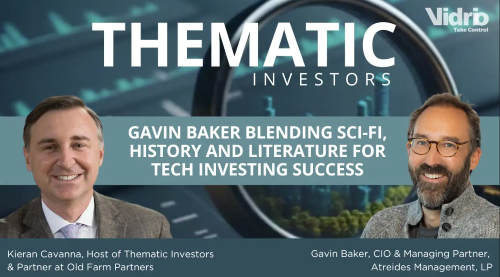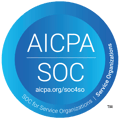In today's institutional investment market, there is a pressing issue regarding data management and control. While many are turning to artificial intelligence and LLMs as potential solutions, the question remains: can investment managers truly grasp the benefits of leveraging AI effectively? Dive into the latest episode of the Improving Alpha podcast to explore these crucial insights.
Michael Oliver Weinberg, co-founder, Improving Alpha Podcast Series
Sponsored by:
Allocators face a barrage of ideas and debates around the use of artificial intelligence and large language models, better known as LLMs. How can huge amounts of investor data be transformed and enriched to solve challenges in asset allocations and improve an investment team's strategy? Better yet, have we accumulated enough ‘scar tissue’ in artificial intelligence to understand what AI gets wrong and is easily corrected, versus what is instantaneously correct and becomes actionable intelligence?
In our latest episode of the Improving Alpha podcast, host Michael Oliver Weinberg sits down with Chris H. Wiggins, Chief Data Scientist, The New York Times and Associate Professor of Applied Mathematics, Columbia University, to dive deeper into the fundamentals of data science, dashboarding, and KPIs.
Further highlights from Michael’s discussion with Chris include:
- in a crowded field of AI adopters, where does the advantage lie today? With the new disruptors in a given industry or the incumbents?
- what are the forces behind data science and how does the framework of descriptive data sets, predictive models, and prescriptive solutions help inform those wishing to leverage AI or LLMs?
- when adding a data scientist to an investment team, what should the hiring organization be on the lookout for, before extending an offer?
- the ‘shocking’ acceptance of the AI problem.
- AI’s impact on the labor force in the next few years.
- from an investment play is it better to buy into the AI craze and the deep learning networks, or is the real ‘gold rush’ centered around the requirements necessary to expand artificial intelligence usage via data centers, people who train the models, and the data contained in these models?
- Listen now to find out more.
About Our Guest: Chris Wiggins
Chris Wiggins is an associate professor of applied mathematics at Columbia University and the Chief Data Scientist at the New York Times. At Columbia he is a founding member of the Department of Systems Biology, the executive committee of the Data Science Institute (http://datascience.columbia.edu/), and the Institute's education and entrepreneurship committees. He is also an affiliate of Columbia's Department of Statistics and a founding member of Columbia's Center for Computational Biology and Bioinformatics (C2B2). He is a co-founder and co-organizer of hackNY (http://hackNY.org), a nonprofit that since 2010 has organized once-a-semester student hackathons and the hackNY Fellows Program, a structured summer internship at NYC startups. Prior to joining the faculty at Columbia he was a Courant Instructor at NYU (1998-2001) and earned his PhD at Princeton University (1993-1998) in theoretical physics. In 2014 he was elected Fellow of the American Physical Society and is a recipient of Columbia's Avanessians Diversity Award.
About Our Host: Michael Oliver Weinberg, CFA
For three decades Michael has invested directly at the security level and indirectly as an asset allocator in traditional and alternative asset classes. Most recently he was a Managing Director, Head of Alternative Alpha, on the Investment Committee, and a board member at APG, a Dutch pension provider. Previously he was the Chief Investment Officer at MOV37 and Protege Partners. Michael is also an Adjunct Professor of Economics and Finance at Columbia Business School, where he teaches Institutional Investing, an advanced MBA course that he created.
Michael is a published author, having written for The New York Times, international investment books, and other publications. Michael has been interviewed by the Wall Street Journal, Financial Times, CNBC, Bloomberg and Reuters. He is a frequent panelist, moderator and lecturer for investment banks, institutional and family office organizations, and business schools.
The information covered and posted represents the views and opinions of the guest and does not necessarily represent the views or opinions of Vidrio Financial, and/or our host, Michael Oliver Weinberg. The Content has been made available for informational and educational purposes only. The Content is not intended to be a substitute for professional investing advice. Always seek the advice of your financial advisor or other qualified financial service provider with any questions you may have regarding your investment planning.








